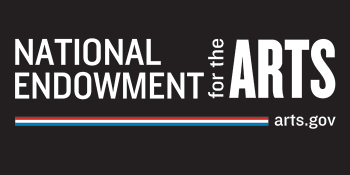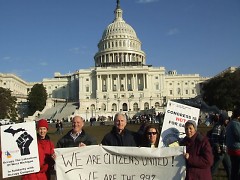Dean Vanderstelt is on a mission to change the way society works. As a member of Occupy the Lakeshore, Vanderstelt works in solidarity with New York City’s Occupy Wall Street and more closely with Occupy GR. With participants from Kent, Ottawa, and Muskegon counties, Occupy the Lakeshore works with Occupy GR by attending protests and sponsoring events such as the March 3 Inter-Occupy Summit. Their goal is to promote social change by peacefully protesting income inequality and the influence of corporations on the government.
Vanderstelt acknowledges that there are a number of stereotypes about the participants in Occupy movements. “It’s a common characterization that they’re young; they’re unemployed,” but Vanderstelt insists that the protestors come from all walks of life. Vanderstelt himself is a clean-cut, casually dressed, 59-year-old retiree. His pre-Occupy story includes a successful career in business management, and though he is financially comfortable now, he describes growing up in a family of modest means. He is one of five children who was raised by a single mother. Vanderstelt says, “I associate myself with people who struggle because we struggled.”
Throughout our interview, the former executive in Vanderstelt shines. As a representative of Occupy the Lakeshore, Vanderstelt travels to Occupy events all over the country to spread his message. He is ambitious and persistent. When government representatives cancel meetings with him, Vanderstelt reschedules. When representatives do not follow through on promises for reform, Vanderstelt follows up with phone calls. He comes to our interview prepared with posters and graphs of financial statistics (all of which, he points out, are cited). Using these posters as props, Vanderstelt takes advantage of the opportunity to discuss two of the issues that he is personally passionate about - income inequality and the influence of corporations on elections.
Income inequality is a concern for Occupy protestors all over the country. Occupy Wall Street’s slogan “we are the 99%” calls attention to the fact that a small percentage of Americans own and control most of the country’s wealth. As he presents a poster that shows the increasing income gap between middle and upper class citizens over the past thirty years, Vanderstelt likens the wealth disparity in America today to the “Banana Republics” of his childhood. He then turns to a graph that ranks countries in order of percentage of children living in poverty. On his graph, the United States is among the nations with the highest child poverty rate. “You would think the richest nation in the world wouldn’t have too many children in poverty…the data shows you that we’ve got something wrong with this country,” Vanderstelt says. He attributes America's high poverty rate to the unequal distribution of wealth, and he argues that governments and corporations alike have a social responsibility that we must address.
He disagrees with laws that exempt large corporations within the country from paying taxes, but he also notes the danger in sending jobs outside of the country. According to Vanderstelt, the owners of large corporations increase their profits when they send jobs to countries where they can pay lower wages. Should global corporations have an obligation to their home country? Vanderstelt thinks so. He points to the social cost of laying off American workers. “Whether it’s health care dollars that are no longer paid by employment [or] whether it’s paying unemployment or welfare of some kind, we all bear that cost.”
Vanderstelt is passionate about income inquality, but he also is concerned about the impact of corporate money on elections. In recent years, large corporations and the wealthy who own them have seen an increasing influence on the government. This is largely because there are fewer restrictions on the way elections can be financed. However, it is Vanderstelt's belief that large corporations should not be able to donate large sums of money to political candidates. He insists that “the root cause of the problem is the significant amount of money that is invested in influencing our government through lobbying and campaign funding.” Among his photos of the Occupy movement, there are photos of protestors holding signs with slogans such as "government is not for sale" and "Separation of Corporation and State." Getting money out of politics and handing control of the government back over to American citizens is Vanderstelt's overarching goal in his work with Occupy.
In spite of his enthusiasm, Vanderstelt admits that he does not expect to see immediate results from the Occupy movement. He states that most of the major social movements took a decade or more to accomplish their goals. When asked how people will look back on the movement, he replies “I hope they’ll say it was one of the most successful movements in history. The headline would be: The Occupy movement returned democracy to the people and ensured that it would never be lost again.”
The Rapidian, a program of the 501(c)3 nonprofit Community Media Center, relies on the community’s support to help cover the cost of training reporters and publishing content.
We need your help.
If each of our readers and content creators who values this community platform help support its creation and maintenance, The Rapidian can continue to educate and facilitate a conversation around issues for years to come.
Please support The Rapidian and make a contribution today.



